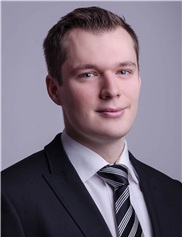Grants We Funded
Grant applicants for the 2023 cycle requested a total of nearly $4 million dollars. The PSF Study Section Subcommittees of Basic & Translational Research and Clinical Research evaluated nearly 140 grant applications on the following topics:
The PSF awarded research grants totaling over $1 million dollars to support nearly 30 plastic surgery research proposals.
ASPS/PSF leadership is committed to continuing to provide high levels of investigator-initiated research support to ensure that plastic surgeons have the needed research resources to be pioneers and innovators in advancing the practice of medicine.
Research Abstracts
Search The PSF database to have easy access to full-text grant abstracts from past PSF-funded research projects 2003 to present. All abstracts are the work of the Principal Investigators and were retrieved from their PSF grant applications. Several different filters may be applied to locate abstracts specific to a particular focus area or PSF funding mechanism.
The Pathophysiology of Adolescent Macromastia and Gynecomastia
Branislav Kollar MD
2018
Children's Hospital Boston
Research Fellowship
Composite Tissue Allotransplantation
Vascularized composite allotransplantation (VCA), such as face or limb transplantation, is a viable reconstructive option for patients with devastating injuries to face or hands. However, acute rejection episodes occur in more than 80% of VCA recipients in first postoperative year, unlike to any other solid organ transplant. Skin is the most immunogenic components of VCA and usually the first and most affected tissue by rejection. Many researchers have hypothesized that antibodies against skin specific antigens distinct from HLA are contributing to skin rejection. However, no such skin specific antibodies involved in skin rejection have been identified yet in humans. Additionally, some VCA recipients demonstrate skin changes which resemble findings from autoimmune diseases. These diseases are known for involvement of non-HLA autoantibodies, however the role of these antibodies in VCA has not been elucidated yet. Therefore, this project should evaluate the significance, specificity and possible pathogenic role of non-HLA antibodies in acute and chronic rejection as applied to VCA. To approach these aims, we will print recently identified skin specific proteins on microarrays and incubate them with patients' sera to study whether antibodies targeting these proteins are present in serum of VCA recipients. Proteins involved in autoimmune diseases (autoantigens) as well as non-HLA antigens known in solid organ transplants to be involved in transplant rejection will be included in the arrays too. Further verification will be performed with ELISA and immunohistochemistry/immunofluorescence assays. We will also correlate the assessed antibody production with acute rejection episodes, to determine the value of non-HLA antibodies as non-invasive biomarkers of rejection. Should skin specific antigens be identified which are known to be polymorphic, a donor and recipient DNA sequencing of the corresponding genes will be performed in order to support a genetic polymorphism and thus a possible pathogenic role of the non-HLA antibodies. Moreover, we will try to elucidate whether non-HLA antibody response is associated with chronic changes of transplanted allografts. In summary, our proposal will investigate novel contributors of VCA rejection, with the hope that these discoveries may help the management of VCA recipients, and therefore prolonging their graft survival and maintaining the quality of life of patients that underwent reconstructive transplantation.
 I was born and spent my childhood in Slovakia, where I was awarded a full scholarship to study medicine in Germany. I chose prestigious Heidelberg University due to my special interest for basic medical research. Indeed, during my medical studies, I decided to pursue the medical thesis on the field of Physiology. After graduating from medical school in 2014, I started my surgical training in General Surgery in Switzerland. However, my keen interest for Plastic Surgery and continuous research activity led me as postdoctoral research fellow to Plastic Surgery Department at University Hospital of Zurich. In order to delve deeper into the vascularized composite allotransplantation (VCA), I shortly thereafter moved to Brigham and Women’s Hospital where I work since June 2017 in Dr. Pomahac’s laboratory. VCA, such as face or limb transplantation, integrates precise surgical procedures with complex immunology. It therefore poses challenges not only from a surgical perspective, but also from the unmatched opportunities for immunological research to impact this exciting field. Thus, the research fellowship at BWH allows me to perfectly combine my passion for Plastic Surgery and research. I feel truly privileged to participate under the mentorship of Dr. Pomahac in complex scientific projects. This fact lays a strong foundation for me to obtain skills required for successful transition into Academic Plastic Surgery.
I was born and spent my childhood in Slovakia, where I was awarded a full scholarship to study medicine in Germany. I chose prestigious Heidelberg University due to my special interest for basic medical research. Indeed, during my medical studies, I decided to pursue the medical thesis on the field of Physiology. After graduating from medical school in 2014, I started my surgical training in General Surgery in Switzerland. However, my keen interest for Plastic Surgery and continuous research activity led me as postdoctoral research fellow to Plastic Surgery Department at University Hospital of Zurich. In order to delve deeper into the vascularized composite allotransplantation (VCA), I shortly thereafter moved to Brigham and Women’s Hospital where I work since June 2017 in Dr. Pomahac’s laboratory. VCA, such as face or limb transplantation, integrates precise surgical procedures with complex immunology. It therefore poses challenges not only from a surgical perspective, but also from the unmatched opportunities for immunological research to impact this exciting field. Thus, the research fellowship at BWH allows me to perfectly combine my passion for Plastic Surgery and research. I feel truly privileged to participate under the mentorship of Dr. Pomahac in complex scientific projects. This fact lays a strong foundation for me to obtain skills required for successful transition into Academic Plastic Surgery.